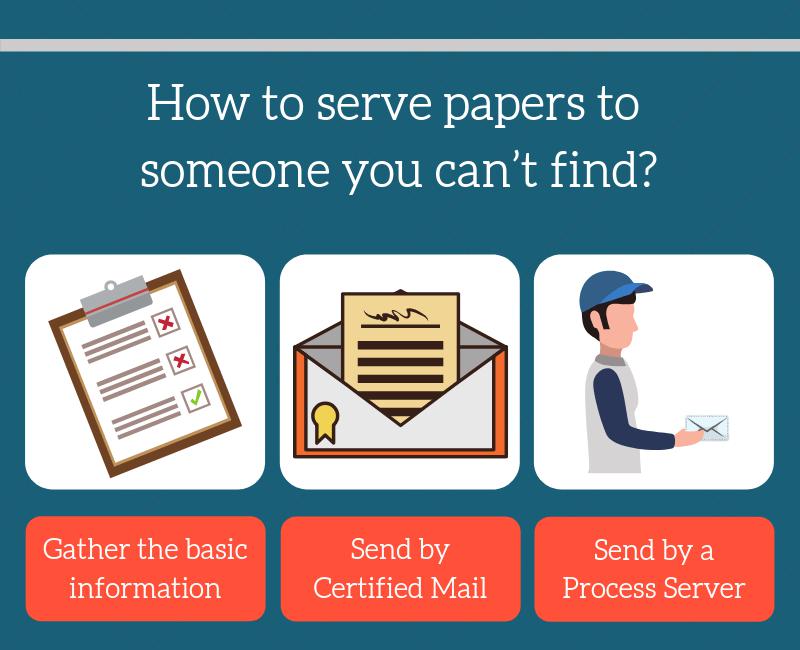Like many other states, there are a variety of ways that a person can be served in Illinois. Prior to serving the party in a case, the plaintiff must file a complaint, request a summons and provide copies to the county clerk. Illinois specifies individuals who can legally serve process. A sheriff is the usual individual who is given this task. If the sheriff presides over a county with a population under two million, the sheriff can employ civilian personnel to perform this job. If the county has a greater population, process may be served by a person who is licensed or registered as a private detective or by a registered employee of a certified private detective company. In this situation, the private detective or employee must give the county sheriff a copy of his or her license. However, if the sheriff is disqualified, a county coroner can serve process. If the case has named the county or state as an interested party, the county's state's attorney appoints a special investigator. If a party petitions for a private person over the age of 18 to conduct service, the court can grant this request so long as the person is not a party to the action. The individuals mentioned above can perform personal service on the defendant anywhere where he or she can be found in the state. Officers can serve process outside their county. The process server can give the summons to the defendant personally or by leaving a copy of it at the defendant's normal residence with another resident of the home who is at least 13 years old and sending a copy of the summons by mail to the defendant. After serving papers, the authorized individual provides return to the court in person or by mail in which he or she states the circumstances of service. Officers complete a certificate to this effect while private citizens complete an affidavit. If the defendant is hiding from service, has left the state, or his or her residence cannot be ascertained despite diligent attempts to do so, the county clerk can publish notice in a newspaper in the county where the legal action is pending upon the plaintiff's request and affidavit. If there is not a published newspaper in the county, the publication can be in a newspaper in an adjoining county. The notice must include the title of the court, the case title, the names of the parties, the case number, the names of the parties being served via publication and the date when default will be entered if there is no answer. The county clerk provides a copy of the publication by mail to the last known address of the defendant. Service by publication requires the notice to be made at least one time a week for three successive weeks. If the defendant is a private corporation, it can be served by leaving a copy of the legal documents with the agent that is registered with the state or with any officer or agent of the corporation located in the state. It can also be served by publication and mail like individuals. If the above methods do not work or are not practical, the plaintiff can request that the court enter an order that provides a comparable method of service. This motion must be supported by an affidavit that states what the plaintiff has done to determine the defendant's whereabouts and why service is impractical under personal service or service by publication. There are special rules of civil procedure in Illinois for different situations, such as serving partners in an action or serving inmates. Individuals who do not reside in Illinois may still be subject to service in Illinois if certain connections have been made with the state. If process is not served correctly, it may have to be commenced again. It can also impair the viability of the legal action in some circumstances. It is important that this process be completed correctly so as not to adversely affect the plaintiff's rights. A lawyer in Illinois can provide information about proper service. Provided by HG.org
Disclaimer: Every effort has been made to ensure the accuracy of this publication at the time it was written. It is not intended to provide legal advice or suggest a guaranteed outcome as individual situations will differ and the law may have changed since publication. Readers considering legal action should consult with an experienced lawyer to understand current laws and.how they may affect a case.
PREV: About Windows containers | Microsoft Docs
NEXT: Microsoft Server Licensing in a Virtual Environment Revisited